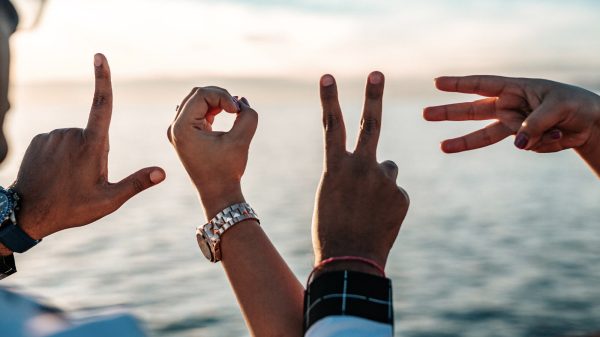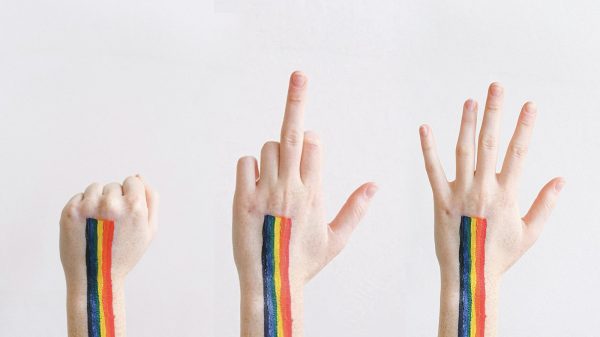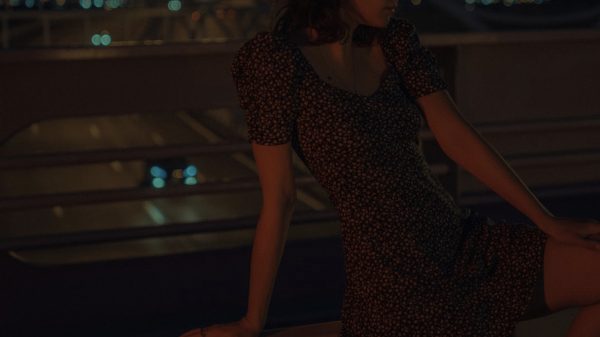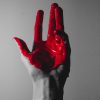This is part of #KaraniwangLGBTQIA, which Outrage Magazine officially launched on July 26, 2015 to offer vignettes of LGBT people/living, particularly in the Philippines, to give so-called “everyday people” – in this case, the common LGBTQIA people – that chance to share their stories.
As Outrage Magazine editor Michael David C. Tan says: “All our stories are valid – not just the stories of the ‘big shots’. And it’s high time we start telling all our stories.”
Hale Demetrio – 32 years old from Cagayan de Oro City – was around five or six years old when he knew he’s not heterosexual, even if he only admitted to himself that he’s a gay guy “when I was in (first year in) high school.” At that time, he said, slowly, “(I started not conforming to gender stereotypes).”
Looking back, Hale didn’t really come out to his family.
“I think they knew (from the start that) I’m a gay guy. So we never talked about it,” he said.
But then eventually, “I had to tell (my parents) to their face: ‘Don’t expect for any grandchildren from me.’ If I’ll be getting married, I’ll be getting married to a man and not to a woman. They just laughed.”
Hale has three siblings; he’s the second eldest.
“Among my siblings, the first to accept me was my elder sister. She was the first person who accepted me with no questions, no reservations,” Hale said.
But Hale knows other aren’t as lucky as him.
So he said to family members who are struggling to understand members who are also part of the LGBTQIA community, “please communicate with them. Don’t just listen to them, but understand what they’re trying to tell you. Also open your hearts and your minds. Because, at the end of the day, even if other people accept us, it also means a lot to us to be accepted by our own bloodline. (It’s) really magical when – you know – you have that security that you can do whatever you want because your family accepts you.”

CONFRONTING COMMUNITY’S HATRED
Hale was also not spared from society’d discrimination.
“(Looking back to when I was) growing up, it was rough,” he said. “That’s why I understand why many members of the LGBTQIA community are tough.”
Hardships were encountered everywhere – e.g. “Crying was forbidden; ‘real men’ wasn’t supposed to do that. People called me ‘bakla‘, even those I didn’t know. And they equated that word with being weak.”
Hale added: “In reality, being ‘bakla‘ doesn’t mean being weak because every day, we face discrimination, whether they show it to our faces or not. But we’re still here, I’m still here, and that makes us (LGBTQIA people) very tough.”
Looking back, too, “my defense (mechanism) when I was younger was to prove them wrong. By doing art, (getting involved in) extracurricular activities. That’s where I channeled my frustrations.”
In hindsight, “I had this perception in the past that LGBTQIA people were ‘lower’ than the heterosexuals. That’s why I also thought I had to overcompensate in various areas to prove them wrong.”
For Hale, meeting elder LGBTQIA people helped shape the person he is today. These elders – he said – told him “it’s not about competing; but being the best you can be.”
It also helps that, now, Cagayan de Oro is changing.
“When I was younger, the connotation (that comes with being gay) was you’d automatically wear skirts, you’ll gossip… (But) now Cagayan de Oro is becoming more educated about the LGBTQIA community. More accepting. And (people) are also more willing to learn,” Hale said.

CAREER PATH
Hale finished Hotel and Restaurant Management at the Philippine Women’s University. “I took that course because it’s the closes I can get to fine arts,” he said.
In 2009, Hale started working as a hair and make-up artist (HMUA).
Some say it’s accidental, how he ended up in this industry; “but I think deep inside me I really know I was destined to become a make-up artist,” Hale said. “Because I really like to draw, to paint. If I used paint brushes in the past, now I use make-up brushes.”
In retrospect, the stereotyping of the entire industry with the LGBTQIA community can be harmful. “At first it was challenging (dealing) with the connotation that when you’re a make-up artist, you automatically belong to the LGBTQIA community,” Hale said. But then again, for him anyway, “at that time (2009) I was already out and proud, so I had nothing to lose.”
Hale said that what is so surprising is that in Cagayan de Oro today, there are a lot of heterosexuals, especially women, who want to become professional HMUAs. “And they see us – those in the LGBTQIA community who came before them – as their mentors,” he said. “And for me that’s a big deal already.”

FINDING LOVE IN C.D.O.
The last time Hale had a serious relationship was in 2016; it lasted around three years.
“(He didn’t want me to have tattoos, so) the time we broke up, I got tattoos,” he said.
The tattoos are of roses, signifying “resilience and a new beginning.” It took two sessions to complete the tattoos; the first took eight hours.
For Hale, “(getting tattoos) had an impact. I felt more liberated. But at the same time, the pain I was feeling from the break-up was diverted because of the tattoos. And it made me more confident about my skin, and also (of) who I am.”
He added: “It’s now also a plus when dealing with guys I like because we now have a talking point.”
Now, if you ask Hale, “there are some guys (showing interest), modesty aside,” he laughed. “But I (don’t reciprocate until the right person comes along), I must say.”
In Cagayan de Oro, looking for a prospective partner is quite challenging, said Hale.
“There are many choices, but they themselves have their own preferences. And for me, I think that’s where we differ,” he said. But “who knows, in a month or two, or after this pandemic, everyone’s preferences will change.”
CREATING CONTENT
Hale has a Tik Tok account, started last year, at the peak of the COVID-19 lockdowns.
“It was actually therapeutic doing contents that were very random,” Hale said.
Hale made a series on Disney princesses. As a pilot, he did Snow White.
“(Some of the comments were offensive) because I did Snow White but they saw Mader Sitang,” Hale recalled. But “one comment led to another, and I said to myself, if everybody’s having fun, I think I did a great job as a content creator.”
He also eventually did Mader Sitang. And “it blew up; we now have around 40,000 followers. And if you search #haledemetrio, we now have around a million views.”
HATE FROM WITHIN
There are still issues that the LGBTQIA community should focus on, said Hale.
Number one, “the discrimination against one LGBTQIA person by another. This is really something we need to focus on,” he said. “Number two (is) our right to marry whoever we want. (This) is a big deal, especially for me.” And number three is “(teaching love and understanding to be shown by the heterosexual community) towards us. Yes, some show us respect, but (this has to be taught specifically) to family members who still don’t fully accept their LGBTQIA members.”
To those in the process of coming out, planning to come out or still in the closet, “always remember you have a community you can turn to,” Hale said, adding that they should “also know the people, especially the friends, who can become allies. Because (knowing them) is also important.”
Yet another lesson to learn is to “always believe in yourself because everyone – and I say everyone – in this world is bound to be for something else, for something great.”

CULTIVATE MUTUAL RESPECT
Hale recognizes that there are people who continue not to be accepting of LGBTQIA people.
“You don’t have to completely accept me. But what we expect from you is to have mutual understanding and respect. Because (I know) it’d also be painful (for you) if we changed places. Ad I can’t even imagine if that will happen (to you),” Hale ended.
FOLLOW HALE DEMETRIO AT INSTAGRAM (https://www.instagram.com/haledemetrio/), YOUTUBE (https://www.youtube.com/HaleDemetrio) AND TWITTER (https://twitter.com/haledemetrio).
The founder of Outrage Magazine, Michael David dela Cruz Tan completed BA Communication Studies from University of Newcastle in NSW, Australia; and Master of Development Communication from the University of the Philippines-Open University. He grew up in Mindanao (particularly Kidapawan and Cotabato City), but he "really came out in Sydney" so that "I sort of know what it's like to be gay in a developing, and a developed world". Conversant in Filipino Sign Language, Mick can: photograph, do artworks with mixed media, write (DUH!), shoot flicks, community organize, facilitate, lecture, and research (with pioneering studies under his belt). He authored "Being LGBT in Asia: Philippines Country Report", and "Red Lives" that creatively retells stories from the local HIV community. Among others, Mick received the Catholic Mass Media Awards in 2006 for Best Investigative Journalism, and Art that Matters - Literature from Amnesty Int'l Philippines in 2020. Cross his path is the dare (guarantee: It won't be boring).




































































